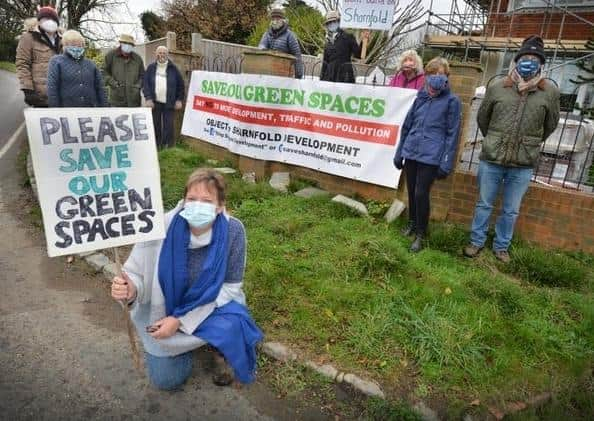Eastbourne’s countryside is under threat
and live on Freeview channel 276
David Attenborough spoke at the UN Security Council meeting last week, chaired by Prime Minister Boris Johnson informing it: “If we continue on our current path, we will face the collapse of everything that gives us our security: food production, access to fresh water, habitable ambient temperature and ocean food chains.”
While David Attenborough’s message was global, it chimes with the dramatic loss of green spaces across the nation. The Campaign to Protect Rural England claims a quarter of a million houses are to be built on greenfield sites, a 475 per cent increase since 2013.
Advertisement
Hide AdAdvertisement
Hide AdThe previous owners of Sharnfold Farm worked very hard on wildlife enhancement, creating lakes and a conservation pond. They planted trees to link woodlands and, with this increased diversity of habitat, the variety and numbers of wildlife species grew significantly.


The farm has been an important part of the area since 1983, offering quality fresh produce, whether ‘pick-your-own’ or from the farm shop, fishing, and beautiful walks through 79 acres of farmland. Once these green spaces have gone they cannot be replaced.
A year ago, Sharnfold was sold as an going concern. The new owners announced, “We’ve achieved a lot already but we have got even bigger plans for its future!” In reality, the future looks bleak for the huge number of visitors to Sharnfold Farm, as the new owners lodged outline planning to build 400 houses.
The case for development was propped up by overly simplified claims that much of the green belt is poor-quality, unproductive land, with no clear requirements for good management. Yet, Sharnfold is an extremely popular and successful pick-your-own farm.
Advertisement
Hide AdAdvertisement
Hide AdBack in the 1930s, English planners came up with a novel idea to prevent urban sprawl: a ring of countryside surrounding the city, protected from development by law. The green belt when seen as part of critical green infrastructure has the potential to deliver multiple benefits for towns and cities: it provides space for agriculture, protection from flooding and drought, it improves air quality and mitigates the urban heat island effect, as well as enabling recreation and enhancing biodiversity.
Current Wealden policy is that no development should happen on green spaces north of the A27. Yet, the government’s drive to develop regardless of the environmental cost may see that barrier breached. Incremental assaults on the green belt overlook the need for vital infrastructure and services to create strong, resilient communities and sustainable places.
Development on the green belt comes with other costs, such as longer commutes, worse congestion and higher levels of air pollution, as well as increased risk of surface water flooding.
These costs are normally exacted after development, and don’t appear in initial assessments, and impact on biodiversity.
Advertisement
Hide AdAdvertisement
Hide AdThe national planning policy for housing uses questionable estimates of housing need based on past trends and dubious population projections.
What’s more, measures of economic viability only take stock of profit, and fail to incorporate environmental or social considerations.
It is encouraging to see the government is now fast tracking the development of brownfield sites. The government has 73 councils signed up for a trial to promote building affordable houses on brownfield sites using SHLAA (Strategic Housing Land Availability Assessment), giving developers a greater degree of certainty, location use, and amount of development.
The real need is for affordable housing, flats and one or two-bedroomed houses, rather than the large homes that developers find more profitable to build. Houses on greenfield sites attract a higher premium than those built on brownfield sites. Local opposition groups have flourished across Wealden as many green spaces other than Sharnfold Farm are being sacrificed for profit.